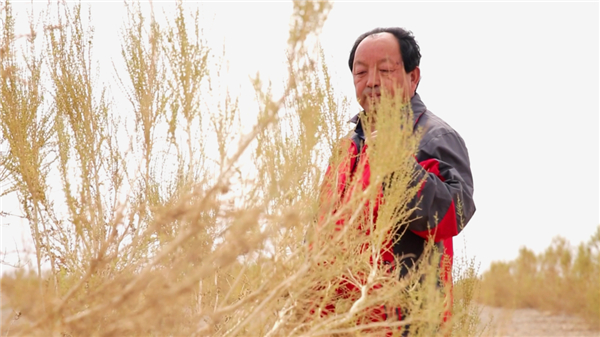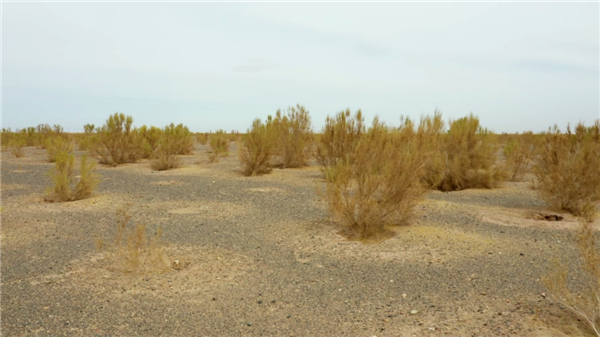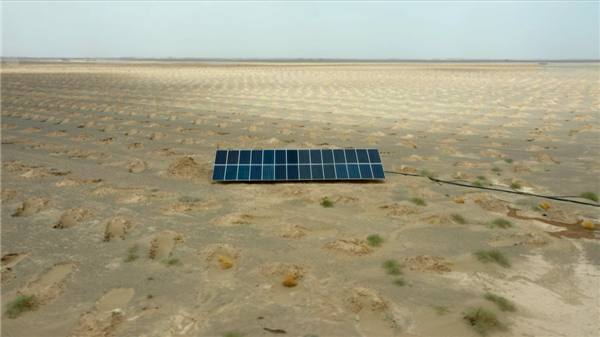Once-barren Ejine Banner turns into oasis
The once-barren terrain in Ejine Banner in North China's Inner Mongolia autonomous region is gradually being covered with green and is full of vitality, due to a man's amazing eight-year effort to plant trees there.
Ejine Banner is located in the westernmost part of Inner Mongolia, with an area of 114,600 square kilometers and a population of only 30,000.
In the early days, it was an oasis of water, beautiful grass and forests, but due to destruction for various reasons, the environment gradually deteriorated.

Wang Jian'gang inspects his suosuo trees in Ejine Banner. [Photo by Ba Gen and Ao Qi/provided to chinadaily.com.cn]
When Wang Jian'gang, a man from Beijing, arrived in Ejine Banner in August 2015, the place left him with the impression that it was vast and sparsely populated, the ecological system and environment were fragile, the wind and sand were taking over and there was drought with little rainfall.
That year, Wang invested more than 13 million yuan ($1.95 million) to lease more than 52,000 mu (3,466 hectares) of the Gobi Desert in an area administered by Dongfeng town in Ejine Banner and he began to plant the native tree species of suosuo, or sacsaoul.
Suosuo is an important tree variety in desert areas that is resistant to drought and salinity. "Each 2-meter-high adult suosuo tree can fix 10 square meters of sand," Wang said.

A view of the suosuo forests established by Wang Jian'gang in Ejine Banner. [Photo by Ba Gen and Ao Qi/provided to chinadaily.com.cn]
Taking advantage of the long periods of sunshine and its strong intensity in Ejine Banner, Wang invented drip irrigation technology driven by solar power to establish and maintain suosuo trees in the Gobi Desert.
"It not only saves energy and water, but also changes our pumping of water using diesel engines and watering with water trucks in the past – solving high-cost problems such as insufficient water and equipment that is easily damaged," Wang said.
In order to achieve a win-win situation from the eco-friendly benefits of suosuo tree planting, Wang grafted Cistanche – a traditional Chinese medicine herb – onto 50,000-mu of suosuo forest.
"At present, more than 700 kilograms of Cistanche seeds have been collected, with an output value of more than 14 million yuan," Wang said.
Over an eight-year period, Wang has planted trees covering more than 310,000 mu in Ejine Banner, creating a green miracle in the Gobi Desert.

Solar panels are installed in the Gobi Desert in Ejine Banner to power drip irrigation devices. [Photo by Ba Gen and Ao Qi/provided to chinadaily.com.cn]



 Print
Print Mail
Mail


